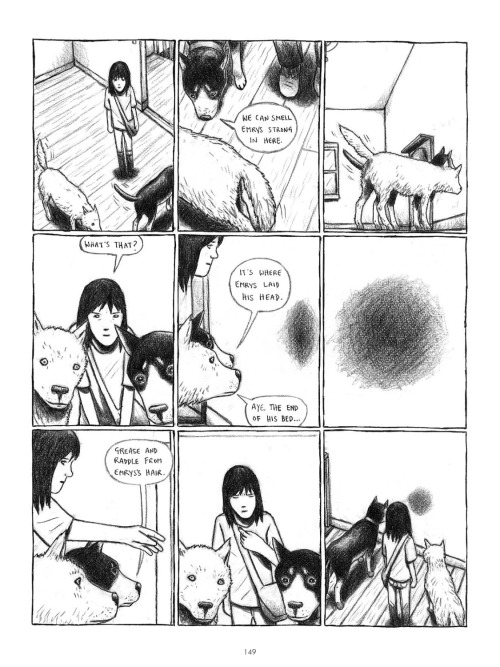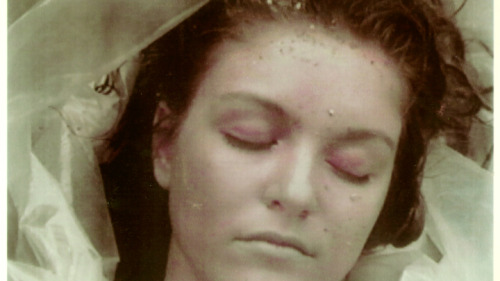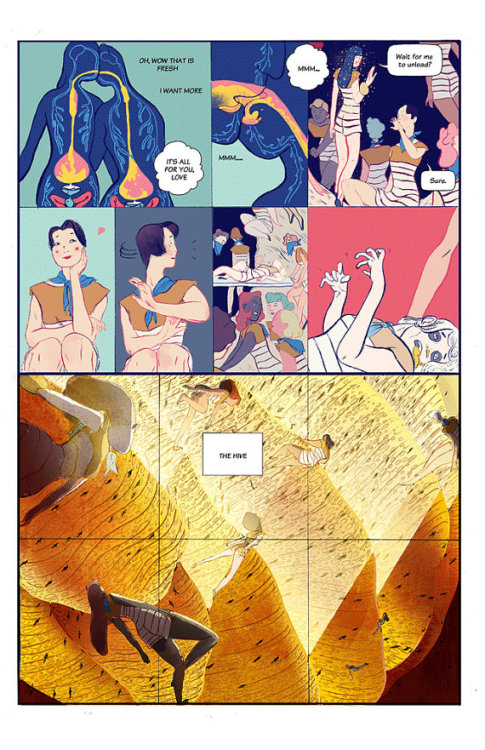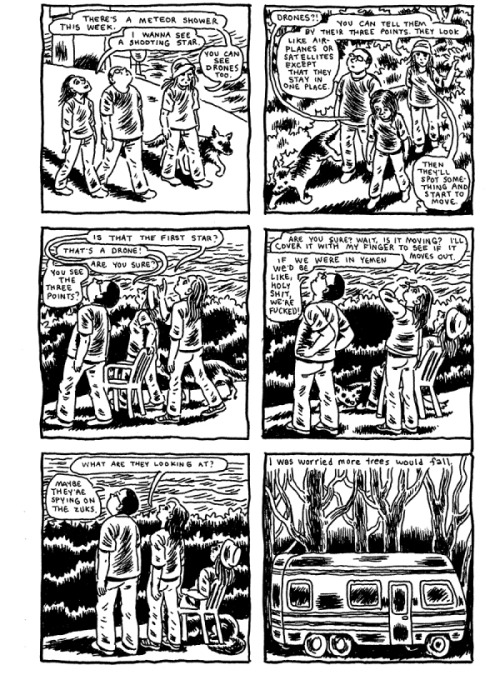Author Archive
Q&A: Terence Winter on the end of “Boardwalk Empire”
October 23, 2014
Nucky started the series as a crooked politician, but as Prohibition continued he became more of the traditional gangster. Was it the law that unleashed the criminal in him?People were made millionaires overnight by Prohibition. If you were willing to traffic in illegal alcohol and run the risk of getting arrested or hijacked by other gangsters, you had to be prepared to do things you hadn’t done before — like murdering people. That’s what Jimmy was warning Nucky about.
You know, there was no shame about it. People had been drinking beer their whole lives, and suddenly it’s illegal? It was pretty hard to convince anybody other than the temperance movement that alcohol was this bad thing. It was just illegal, not morally wrong. Your average man on the street had no intention of giving up his daily beer or scotch — he just had to figure out how to do it. So these guys weren’t looked down upon. It’s not like they were heroin dealers or murderers. They were providing a service, a commodity, that most people found innocuous.
There was also a collision of historic events that not only made the gangster world possible, but were tailor-made for it. You had a generation of young men coming back from World War I who spent the last two years in trenches killing people for free. Now, suddenly, all you have to do is guard a truck and maybe shoot somebody, and you could make a fortune. Guys lined up all the way around the block to do that, since they’d basically been doing exactly that for nothing. You had all these disenfranchised, disillusioned young men who were perfectly willing and able to get into that business.
There’s a character on the show who says: “The premise of fiction is that people have some sort of connection to each other. But they don’t.” Is that your conclusion as well?
I think it’s a matter of perspective. I’ve always thought that when they say ignorance is bliss, the converse to that is that knowledge is hell. The more you know, the bleaker things can get. Jimmy once said that all you have to worry about is when you’re alone at night. You run out of booze and you run out of company, and [then] you’re really alone with your thoughts.
I interviewed Boardwalk Empire creator Terence Winter about the upcoming finale, and his next project with Martin Scorsese, Mick Jagger, and Bobby Cannavale, for Rolling Stone.
Comics Time: Gast
October 23, 2014Murder mysteries are defined by their central, structuring absences. A hole occupies the space where a life once lived. That hole can never be filled. But through an investigation of the facts, an uncovering of the truth, and a pursuit and capture of the killer, we can define and discover the shape of the hole to a degree of accuracy sufficient to put a cover on it, so that the still-living may proceed past it once more.
Gast, a graphic novel of exquisite and accomplished empathy and restraint by alternative-comics veteran Carol Swain, tells a story centered on a hole far harder to close up than most. It proceeds with the methods and mechanics of investigation and discovery. The scene of the crime is visited. The victim’s routine is examined. The friends and acquaintances of victim and suspect alike are questioned. Evidence is recovered and cataloged: a discarded make-up bag, a shell casing, a stain on the bedroom wall. Means, motive, and opportunity are all established.
But there is no crime, because killer and victim are one and the same. There is no pursuit, no arrest, no trial, no conviction, because there can’t be. We don’t so much as see the dead person once — not as a corpse, not in a flashback, not in a photograph. All we have is what is learned by a quiet, curious eleven-year-old girl, Helen, a lover of nature and long walks who must piece together even the most basic of facts about the deceased. At first we don’t even know the deceased is a person: Helen is simply told of a “rare bird” who killed himself nearby, and as a Londoner newly arrived in the rural region of Wales where the story is set and unfamiliar with the antiquated expression, she starts her search looking for an actual bird. Like the pages of the ever-present journals, Helen starts with a completely blank slate. Over the course of many long wordless walks and quiet conversations with both her human and, mysteriously, animal neighbors, she slowly fills the tabula rasa with discoveries: suicide, gender dysphoria, the allure and peril of solitude, and the life and death cycle of this farming community and its inhabitants. She learns that most adult of lessons: We each of us have roles we play in the lives of others, shapes we take in their worlds—shapes that can be integral to those lives’ landscape yet still not save us.
The HuffPost Affair
October 20, 2014I’ll be talking The Affair, Boardwalk Empire, and Homeland on HuffPost Live’s Spoiler Alert at 5pm today. Turn on tune in!
“Boardwalk Empire” thoughts, Season Five, Episode Seven: “Friendless Child”
October 20, 2014“You probably don’t even hear it when it happens, right?”—Bobby Bacala, The Sopranos
“You tell yourself it’s quick, but you don’t know. You can’t know, until it’s you, and then you can’t tell anyone.”—Nucky Thompson, Boardwalk Empire
In an echo of the New Jersey gangster masterpiece that spawned it, Boardwalk Empire‘s penultimate episode ever — “Friendless Child” — walked Nucky Thompson right up to the edge of the great unknown. He’s lost everything now, or close enough not to make much of a difference. His unlikely right-hand man Mickey Doyle and ruthless, loyal bodyguard Archie were tossed on the pile of bodies that’s been mounting around him for years — a levee of corpses designed to protect his kingdom by the sea. But that empire, too, has fallen, traded away for the life of a nephew who wants nothing to do with him to a trio of crime lords who couldn’t possibly intend to honor the agreement. When they break it, they’ll break it with a bullet.
But now that Nucky is alone – now that there are no more plans to hatch, deals to make, wars to fight – what does he see in his isolation? A letter from Gillian Darmody, and the sight of her face staring back, begging for help. Her plea and her gaze are an indictment of the terrible crime Nucky committed by bringing her to theCommodore in order to begin his long road to power. (A decision, we learn tonight, he made knowing full well the fate that awaited her.) By having her direct them not just at Nucky but at everyone watching the show, Boardwalk makes this act’s importance clear in no uncertain terms. That final shot puts young Gillian at the center not only of the frame, but by extension the episode. It suggests that the suffering of the series’ greatest female character is no less important than the moves and machinations of the men fighting for control of the empire she eked out an existence within. It shows that that empire would not exist without the suffering of Gillian and countless other people like her. It’s the series’ gutsiest, and most moral, move to date.
I reviewed tonight’s penultimate Boardwalk Empire for Rolling Stone. I cannot stress enough that if this show were the vapid, self-serious shoot ’em up it’s made out to be, Gillian Darmody would not be where she is in this episode.
BLACK FRIDAY: HALLOWEEN MIX 2014
October 17, 2014i made a mix of scary songs for frightened people // download it here // track list in lyrics field in metadata // listening suggestion: let it all take you by surprise // your childhood is over
HuffPost Dead
October 13, 2014I’ll be talking Boardwalk Empire, Homeland, and (god help me) The Walking Dead on HuffPost Live’s Spoiler Alert show at 4:40pm today. Click here to tune in!
And if you missed last week’s show, watch it here!
“Boardwalk Empire” thoughts, Season Five, Episode Six: “The Devil You Know”
October 12, 2014I can’t really excerpt anything from my review of tonight’s Boardwalk Empire without ruining it for someone. If you’ve seen it, though, please read the review.
The 30 Best Twin Peaks Characters
October 10, 20141. Laura Palmer
She gave the show its central mystery, and its zeitgeist-conquering catch phrase: Who killed Laura Palmer? But even though her death is literally what made the story possible, it’s her life that made it matter. Unlike the macabre MacGuffins of so many post-Peaks dead-girl mysteries, Laura was not a beautiful cipher, existing solely to inspire the male detectives investigating her murder. She was a vibrant, complicated character in her own right, the person who best embodied the small-town-secrets theme, and who paid the highest price for those secrets. Her life, and the suffering that ended it, were always foregrounded. And our glimpses of her in the series – a videotape, an audio recording, a diary entry, a visitation from Another Place – were all merely a prelude to her starring role in the prequel film Fire Walk With Me, featuring actor Sheryl Lee’s tear-down-the-sky performance of a character coming to grips with the most profound cruelty imaginable. “She’s dead, wrapped in plastic”? Yes. But she’ll live forever.
I ranked the 30 Best Twin Peaks Characters for Rolling Stone. I got so much out of doing all this writing about this show, which I love deeply and think is one of the two or three pinnacles of the entire art form of television. I hope it shows.
Comics Time: Honey #1
October 10, 2014Honey #1 is an elegantly drawn, exuberantly paced, spectacularly colored workplace dramedy/romance. It’s an action-adventure story set in a fantasy-indebted world with prominent horror elements. It’s a radical reconsideration of anthropomorphism and “funny animal” comics. It’s a serious exploration of how communities shore up certain strengths of the individuals they comprise while also pushing them all toward willful ignorance of wrongs committed in their name. It’s a gedankenexperiment about an all-woman society — imagining it, putting it through its genre-story paces, examining female friendship, romantic relationships, and enmity in the fresh air created by the near-total absence of men and thecompleteabsence of men in positions of power. It’s hugely, admirably, refreshingly ambitious for a twelve-page comic book. If the work cartoonist Céline Loup assembles from these myriad parts is not without flaw, that’s almost beside the point.
Jumping the Shark: 10 Great TV Shows That Took a Turn for the Worse
October 6, 2014In the words of Sick Boy, “Had it. Lost it.” I covered Homeland (the pacemaker) and True Blood (“I’m a faerie? How fuckin’ lame!” Indeed, Sookie, indeed) for Rolling Stone’s list of 10 shark-jumping moments from once-good tv shows.
Today on HuffPost Live: Homeland, Boardwalk Empire…and Twin Peaks
October 6, 2014I’ll be discussing the season premiere of Homeland, the latest episode of Boardwalk Empire, and the news that Twin Peaks is returning for a new season in 2016 (!!!!!!!! more on that anon) on HuffPost Live’s Spoiler Alert show at 4:50pm. I’ll be talking about Homeland, Boardwalk Empire, and Twin Peaks (!!!) on HuffPost Live’s Spoiler Alert show today at 4:50pm. Click here to tune in!
“Boardwalk Empire” thoughts, Season Five, Episode Four: “King of Norway”
October 5, 2014“You want it to be one way. But it’s the other way.” That’s a quote from The Wire, another great HBO drama of crime and community. But Nucky Thompson – and the Boardwalk Empire viewing audience – would do well to heed the words of the steely-eyed young Baltimore drug lord Marlo Stanfield. When a fictionalized version of a bit player in gangland lore declares war against Lucky Luciano, Johnny Torrio, and Meyer Lansky – the three men who established the most successful organized crime operation in American history – that war can only end one way.
Granted, it may not be as simple as Nucky dying in defeat at the end. Perhaps he’ll find some way to make peace with the kings of New York —”paying Roman tribute,” as he puts it to current crime boss Salvatore Maranzano right before the Luciano/Lansky/Torrio alliance tries to assassinate them both. All we know for sure is that he won’t be sending them to their graves as promised. But with material this varied and rich it hardly matters. The task of tonight’s dynamite episode — “King of Norway” — was simply to show whether a journey to a preordained destination can be worth taking. The answer is yes.
“My life is a fuckin’ shipwreck.” “Well, land ho.” I reviewed tonight’s fine Boardwalk Empire for Rolling Stone.
Terence Winter is coming
September 29, 2014
I interviewed Boardwalk Empire creator Terence Winter about the end of the series — and the start of his new one with Martin Scorsese, Mick Jagger, and Bobby Cannavale — for the TV Issue of Rolling Stone, on stands now. Says so right there on the cover and everything. I hope you like it!
“Boardwalk Empire” thoughts, Season Five, Episode Four: “Cuanto”
September 28, 2014Power is a performance. It’s a matter of knowing your audience, picking up on whether you should be funny or scary, when to play to the cheap seats or act with awards-caliber subtlety. Isn’t this the obstacle faced by Steve Buscemi in the minds of many viewers? His quiet, hangdog intensity as Nucky Thompson is an outlier in an era of volcanic, Byronic TV antiheroes. But that’s the point: For all his successes before and after Prohibition, Thompson’s decision to become more than “half a gangster” has forced him into a role he can’t quite master. As Boardwalk Empire hits the halfway mark of its final season in tonight’s episode — “Cuanto” — it examines the nature of that performance, and those of other characters who’ve found themselves shoved onto stage.
As a boy, the future chairman of the boardwalk is brought before the Commodore, who offers the young Nucky a glimpse of his grand plans for the Jersey shore (and an unwitting peek at his collection of photos of sexualized young girls), grinning when the kid notes that this is Atlantic City “as you wish it to be.” That wish includes everything from a stronger transportation infrastructure to segregated housing. But Nucky’s ability to follow along does nothing to placate his boss. “You think you’re a smart boy.” “If I say yes, you’ll think I’m boasting. If I say no you’ll think I’m lying.” “Don’t try to parse me.” The boy is trying his best, but this command performance is unscripted, in front of the toughest crowd in town.
So he’s naturally flabbergasted when he and his brother Eli are rewarded for going off-book. After catching them breaking into the Commodore’s hotel for a taste of the good life (read: indoor plumbing), Sheriff Lindsay takes the Thompson boys to his own house for a home-cooked meal with his kind, politically minded wife and smart, friendly family. They eat good food, they tell corny jokes, they negotiate a role for the patriarch in Mrs. Lindsay’s temperance crusade, over which the Sheriff conspiratorially shares a nod and a wink with Nucky. It’s too much for the kid, who breaks down crying at his first glimpse of a life that’s emotionally rewarding — a life where he can simply be himself. Cut to an hour later, when he’s asking the Sheriff to assassinate his own father. The terms with which Lindsay demurs are revealing: “Don’t go where you don’t belong. Don’t take what isn’t yours. Don’t pass your burdens on to others. Don’t make me do my job — because I will.” Know your role, Deputy Sheriff Thompson.
The rest of my review of tonight’s Boardwalk Empire for Rolling Stone continues along these lines.
“Lost,” A to Z
September 22, 2014
L: Locke
The quintessential fan favorite, Locke was a role-of-a-lifetime situation for actor Terry O’Quinn, the equivalent of Ian McShane’s Al Swearingen on Deadwood or Bryan Cranston’ss Walter White on Breaking Bad. The revelation of his paralysis — magically cured by the Island — in the standout fourth episode “Walkabout” hooked many viewers on the show permanently, and his twinkle-eyed charisma and ferocious drive to master the Island’s mysteries were perpetual series highlights. Though he helped cause the destruction of the Hatch in Season Two, Locke ultimately failed as the Island’s would-be guardian, murdered by Ben Linus in a seedy hotel and never returning in the flesh. He was the avatar of Lost‘s great secret theme: that some people get lost and never quite find themselves again.M: Monster
Unseen for what felt like ages, the Monster was slowly revealed first to be an amorphous black cloud, then a shapeshifter that could take on the appearance of dead figures from the castaways’ past, then as a Locke impostor determined to destroy the castaways — and then as the immortal Man in Black, Jacob’s brother and opposite number. In this last, true form, the Monster became the show’s true Lucifer figure, as the Man in Black’s escape from the Island would supposedly mean the end of the world. But it was arguably better suited to the show as a protean, shadowy figure of menace, transforming itself according to the expectations of its viewers — just like Lost itself.N: The Numbers
Hurley’s winning lottery ticket. The Hatch’s serial number. Rousseau’s broadcast. A bunch of soccer players’ jerseys in the airport. Wherever “4 8 15 16 23 42” appeared, which was pretty much everywhere, fans took notice. Their actual meaning? They were how Jacob labeled the “candidates” among the castaways for his position as the Island’s protector, and took on a sort of universal mystical significance because of that. But that was just a McGuffin. The sense that everything was somehow connected — that was the point.O: The Others
The sinister figures whose appearances were terrifying (and seemingly supernatural) in the early seasons, the Others were slowly revealed to be quasi-suburbanites whose misguided fanaticism about the Island led them to commit any number of atrocities, including the slaughter of the utopian science hippies called the Dharma Initiative. The show’s writers were never more inventive than when they peeled back a new layer off the Others to reveal some strange new wrinkle to their strange cult. Bonus: the White Walkers in Game of Thrones are called “The Others” in the original A Song of Ice and Fire novels, but Lost‘s shadow was long enough for the name to be dropped for the small-screen adaptation.P: ”Pilot”
Lost‘s first episode — half of the two-part series premiere, the most expensive pilot ever produced by a network at the time — is as close to a perfect hour of television as you’re likely to find. Its opening sequence masterfully adds one disorienting element to another: an opening eye, a lush bamboo forest, a wounded man in a tattered suit, a dog, a bottle of airplane liquor, an empty sneaker, unidentifiable mechanical and human noises. It all climaxes with Jack Shephard’s emergence on to a beautiful beach and straight into a chaotic crash site. In a country still raw with post-9/11 trauma, the pilot’s air-crash imagery and hints at terrorism (remember when Sawyer viewed Sayid as a suspect?) dealt directly with our collective fear, as genre art is often uniquely suited to do. “Guys…where are we?” asked Charlie in the pilot’s final line. Millions of viewers stuck around to find out.
Here’s the L-M-N-O-P from the Lost A to Z feature I wrote for Rolling Stone in honor of the show’s 10th anniversary. Lost is the first show I ever wrote about for a paying gig, back in my Wizard days, and the responses I’d get to my posts about it at this very blog all those years ago are what encouraged me to pursue writing about television any further at all, o my relationship with it is one I value a great deal. I hope you dig the piece!
“Boardwalk Empire” thoughts, Season Five, Episode Three: “What Jesus Said”
September 21, 2014Ironically, the underworld is the one place where our antihero’s real-life inspiration — Nucky Johnson — made a legacy that lasted. As the host of the 1929 Atlantic City Conference, a multiethnic gathering of crime bosses from across the country whose ranks included such Boardwalk Empire characters as Meyer Lansky, Charlie Luciano, John Torrio, Al Capone, Bugsy Siegel, Waxey Gordon, Jake Guzik, and Owney Madden, Johnson was a pivotal player in the organization of the criminal network known as the National Crime Syndicate. This in turn was a crucial step on the road to the establishment of New York’s “Five Families” and the nationwide governing body called the Commission by Luciano and Torrio several years later, following the bloody resolution of the war between Joe Masseria and Salvatore Maranzano.
But the Atlantic City Conference – like Arnold Rothstein’s murder in 1928, like the stock market crash and the St. Valentine’s Day Massacre in 1929 – falls in Boardwalk‘s seven-year gap between its fourth and fifth seasons. Generally, Boardwalk‘s storytelling instincts are sound, particularly in building to big climaxes, so that’s a decision worth trusting. Lining up the end of the show with (presumably) the final consolidation of power by Luciano and Lansky makes sense — and hey, nothing’s stopping us from deciding that Nelson Van Alden and Eli Thompson were Capone’s St. Valentine’s Day triggermen on our own. But given the fictional Nucky’s envy of Joe Kennedy’s legacy, cutting the real Nucky’s single greatest contribution to American history is a curious choice. However, Nucky’s conversation with Lansky in Havana, in which it’s revealed they haven’t seen each other since 1928, means the Conference never even took place in the Boardwalk universe — so it’s possible that the show’s simply playing with the timeline.
Either way, Nucky’s empire as it currently stands has narrow boundaries, and establishing them cost him everything. His sister and parents, including his abusive father, are dead. His brother Eli is in hiding. His surrogate father and son — the Commodore and Jimmy Darmody, respectively — both turned on him, and both died for it. His closest companion for years, Eddie, killed himself. He lost his first wife, Mabel, in childbirth and his second, Margaret, when she could no longer stand him. His relationship with his nephew Willie is cordial enough, sure, but as Kennedy notes, that’s a very thin reed to hang a life on.
It’s only in talking to Sally Wheat – long-distance love interest, business partner, and the closest thing he’s had to a friend in the entire series – that Nucky feels truly at home. In moment so sweet it’s shocking for a show like this, the two of them listen to “Happy Days Are Here Again” together over the phone. Suddenly a relationship between two Prohibition Era bootleggers becomes recognizable to anyone who’s ever enjoyed a favorite song with a loved one over videochat.
Well, I used my knowledge of mafia lore and close reading of film to try to predict the end of Boardwalk Empire AND compare a very sweet plot point to using Google+ Hangouts in my review of tonight’s episode, so I’ve probably peaked.
HuffPost Live redux
September 15, 2014I’ll be on HuffPost Live again at 5pm today, talking Boardwalk Empire and the 10th anniversary of Lost. Tune in here!
Comics Time: July Diary 2014
September 15, 2014At first glance, Gabrielle Bell’s six-panel daily diary comics don’t have a lot in common with the Mines of Moria sequence in Peter Jackson’s The Lord of the Rings . Or at any number of subsequent glances, I suppose. But the more Bell I read, the more I think they share a primary strength: a sense of space, of environment. Autobio slice-of-life comics, by the nature of what most of us tend to do with our lives every day, often consist in large part of conversations, either with a small number of other parties or within the head of the diarist as they go about their day. Unless those conversations reference a specific landmark, cartooned depictions of them can, and often do, devolve into dialogues that could be taking place anywhere, or nowhere. They have all the spatial context of action figures or dolls or sock puppets held aloft by the cartoonist, one in each hand, and made to speak with the voices of the participants.
Not so with Bell, and not so in the most recent iteration of her annual July Diary project. Hers is a world where rooms, furniture, streets, buildings, and human bodies are arrayed in a three-quarter cheat to the audience, enabling us to see into corners, grasp the depth and dimensionality of each space. Her inimitable spotted blacks — little jagged-edged rectangular smudges — set off the surfaces of the objects with which she is surrounded, and pool in the wrinkles of her characters’ clothes like ink. It’s impossible to look at a Gabrielle Bell diary-comic page and reduce it to stick figures against a blank backdrop, any more than you could do so with the fellowship of the Ring dodging orc arrows as they flee down those crumbling steps. Her apartment, her garden, the streets of her neighborhood, the wilderness surrounding the trailer where her mother lives following the house fire that understandably dominates the diary — Bell makes them distinct, inhabitable, navigable spaces. That her rigid, six-panel grid closes those spaces off is a feature, not a bug. Each panel feels like a tiny, beautifully constructed diorama, where Bell and her acquaintances will act out the same moment forever.
I reviewed Gabrielle Bell’s July Diary 2014 for The Comics Journal.
“Boardwalk Empire” thoughts, Season Five, Episode Two: “The Good Listener”
September 15, 2014Elsewhere, Gretchen Mol demonstrates why she may be Boardwalk‘s MVP as Gillian Darmody. This has always been a show that’s had a hard time with its women, even more so than many of its macho peers. Margaret has often felt tangential to the action (remember that sex-ed subplot?). Angela Darmody’s entire story depended on her not being able to do anything she actually wanted to do. Nucky’s string of showgirl girlfriends (beginning with the delightfully batshit Paz De La Huerta) had little to do but be frivolous and naked. The two women around whom Chalky’s storyline centered last season, his daughter Maitland and singer Maybelle White, were both fascinating — and were each gone by the finale.
Gillian is different. As a character, she’s required to get naked on command as much as anyone — it used to be her job as a showgirl, and her route to continued influence over the Commodore; now, in an insane asylum following her unwitting confession to a murder last season, it’s a condition of her imprisonment. But her nudity has a terrible energy to it, informed by her rape when she was a girl, and her subsequent determination to turn that victimization to her advantage. Here, that energy is reflected in the freakish image of a room full of mental patients erupting out of strait-jacketed bathtubs like aliens from chest cavities. When Gillian herself finally emerges, slowly and deliberately instead of in a panicked fit, her naked body is both a come-hither and a middle finger all at once. That’s part of what made the shaggy-dog-joke nature of her caged-heat storyline in this episode so satisfying. No, her female warden isn’t the queer-predator cliché she seems; she’s just one woman bargaining for a taste of the good life with another woman who fought tooth and nail to taste it herself.
9.11.14
September 11, 2014As he followed her inside Mother Abagail’s house he thought it would be better, much better, if they did break down and spread. Postpone organization as long as possible. It was organization that always seemed to cause the problems. When the cells began to clump together and grow dark. You didn’t have to give the cops guns until the cops couldn’t remember the names…the faces…
Fran lit a kerosene lamp and it made a soft yellow glow. Peter looked up at them quietly, already sleepy. He had played hard. Fran slipped him into a nightshirt.
All any of us can buy is time, Stu thought. Peter’s lifetime, his children’s lifetimes, maybe the lifetimes of my great-grandchildren. Until the year 2100, maybe, surely no longer than that. Maybe not that long. Time enough for poor old Mother Earth to recycle herself a little. A season of rest.
“What?” she asked, and he realized he had murmured it aloud.
“A season of rest,” he repeated.
“What does that mean?”
“Everything,” he said, and took her hand.
Looking down at Peter he thought: Maybe if we tell him what happened, he’ll tell his own children. Warn them. Dear children, the toys are death–they’re flashburns and radiation sickness, and black, choking plague. These toys are dangerous; the devil in men’s brains guided the hands of God when they were made. Don’t play with these toys, dear children, please, not ever. Not ever again. Please…please learn the lesson. Let this empty world be your copybook.
“Frannie,” he said, and turned her around so he could look into her eyes.
“What, Stuart?”
“Do you think…do you think people ever learn anything?”
She opened her mouth to speak, hesitated, fell silent. The kerosene lamp flickered. Her eyes seemed very blue.
“I don’t know,” she said at last. She seemed unpleased with her answer; she struggled to say something more; to illuminate her first response; and could only say it again:
I don’t know.
–Stephen King, The Stand




